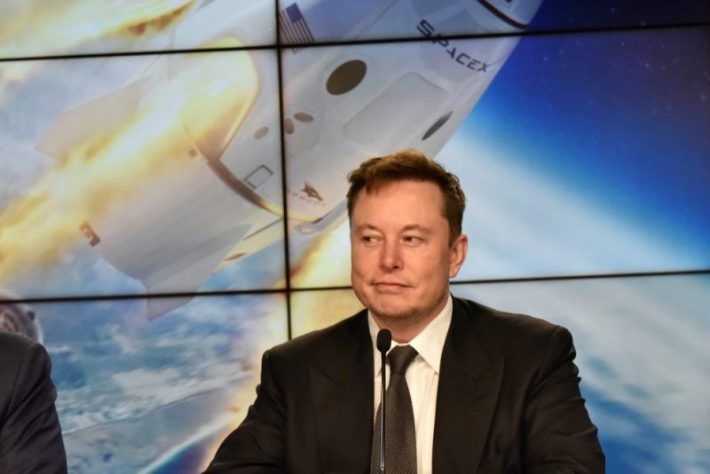Beijing on Tuesday accused the United States of irresponsible and unsafe conduct in space over two “close encounters” between the Chinese space station and satellites operated by Elon Musk’s SpaceX.
Tiangong, China’s new space station, had to manoeuvre to avoid colliding with one Starlink satellite in July and with another in October, according to a note submitted by Beijing to the United Nations space agency this month.
The note said the incidents “constituted dangers to the life or health of astronauts aboard the China Space Station”.
“The US… ignores its obligations under international treaties, posing a serious threat to the lives and safety of astronauts,” Chinese foreign ministry spokesman Zhao Lijian said at a routine briefing on Tuesday.
Starlink, a division of SpaceX, operates a constellation of close to 2,000 satellites that aims to provide internet access to most parts of Earth.
SpaceX is a private American company, independent of the US military and civilian space agency NASA.
But China said in its note to the UN that members of the Outer Space Treaty – the foundation of international space law – are also responsible for actions by their non-government entities.
SpaceX has not responded to a request for comment.
Evasive manoeuvres to reduce the risk of collisions in space are becoming more frequent as more objects enter Earth’s orbit, said Jonathan McDowell of the Harvard-Smithsonian Center for Astrophysics.
“We’ve really noticed the increase in the number of close passes since Starlink started getting deployed,” he said.
Any collision would likely “completely demolish” the Chinese space station and kill everyone on board, McDowell added.
The core module of China’s station Tiangong – meaning “heavenly palace” – entered orbit earlier this year, and it is expected to become fully operational next year.
‘Prepare to boycott Tesla’
Beijing’s complaint about Starlink prompted criticism on Chinese social media of SpaceX’s billionaire founder Musk, who is widely admired in China.
One hashtag about the topic on the Twitter-like Weibo platform racked up 90 million views on Tuesday.
“How ironic that Chinese people buy Tesla, contributing large sums of money so Musk can launch Starlink, and then he (nearly) crashes into China’s space station,” one user commented.
Musk’s electric car maker Tesla sells tens of thousands of vehicles in China each month, though the firm’s reputation has taken a hit this year following a spate of crashes, scandals and data security concerns.
“Prepare to boycott Tesla,” said another Weibo user, echoing a common response in China to foreign brands perceived to be acting contrary to national interests.
The reputation of Tesla – which sells tens of thousands of vehicles in the country each month – has faltered this year following a spate of crashes, scandals and data storage concerns.
But the company is still hugely popular and sells around one out of every four of its cars in the country, as well as building a rare wholly owned factory in Shanghai.
- AFP with additional editing by Kevin Hamlin
ALSO READ:
Elon Musk Urged to Pay Some Tax After Time Magazine Award
Elon Musk Hits US Federal EV Spending: WSJ
Elon Musk Warns of SpaceX Bankruptcy Risk: Daily Telegraph
























